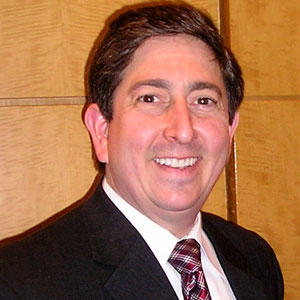
“Congress is working together on a nonpartisan issue that will have a profound effect on the lives of all Americans. H.R. 6, the 21st Century Cures Act, will bring our health care innovation infrastructure into the 21st Century, delivering hope for patients and loved ones and providing necessary resources to researchers to continue their efforts to uncover the next generation of cures and treatments,” Chairman Fred Upton (R-MI) and Representative Diana DeGette (D-CO) discussed their vision for the 21st Century Cures initiative in April 2014.
Breaking Down Barriers
Seeking to move the United States forward as a leader in healthcare innovation, Republicans and Democrats set aside differences and attempted to craft legislation, in a divided government, that would break down barriers and advance treatments and cures for diseases. Like many things, cancer knows no political party, and the malady topped the list in the goals for the 21st Century Cures Act.
It was not easy, and early in the process, even some of the leading members of the Energy and Commerce Committee, the governing body in the U.S. Congress that had jurisdiction over the legislation, voted against their own bill because they felt it was not going to meet the intent of the act. But, as the discussion continued and both sides literally came to the table to find common ground, the bill made its way to the president’s desk to be signed into law during a special session of Congress.
Health professionals, patient advocates, biotech, the pharmaceutical industry, caregivers, families, friends, and the general public rallied around this bill, and urged Congress to push its passage forward. ONS formally weighed in throughout the process and sent in a letter after the bills passage, saying, “We are especially pleased 21st Century Cures includes a number of high priorities for oncology nurses, such as increased funding for the National Institutes of Health, precision medicine, and transparency for expanded access programs. 21st Century Cures will also authorize funding of the Cancer Moonshot Initiative. ONS has been centrally involved in this Initiative through membership on the National Cancer Advisory Board’s Blue Ribbon Panel, participation on the panel’s working groups, and involvement in a roundtable panel of oncology experts moderated by Vice President Biden.”
ONS’s Influence in the Act
Although ONS has dedicated leadership, volunteers, and staff involved in many aspects of health policy, 21st Century Cures had been an organizational priority from the beginning. Even the Energy and Commerce Committee recognized the important role and reputation oncology nurses have in the healthcare discussion and sought ONS’s support for the measure.
What the Act Entails
Outlined in the bill were elements for what was commonly referred to as “discovery, development, and delivery” of promised advances for diseases, and key talking points included:
- Modernizing clinical trials and the means by which safety and efficacy data are accumulated and analyzed
- Putting patients at the heart of the regulatory review process
- Supporting broader, more collaborative development, qualification, and utilization of biomarkers, which help assess how a therapy is working, and on whom, earlier in the process.
- Streamlining regulations and providing more clarity and consistency for innovators developing health software and mobile medical apps, combination products, vaccines, and regenerative medicine therapies.
- Incentivizing the development of drugs for pediatric diseases and medical countermeasures, and empower FDA to utilize flexible approaches in reviewing medical devices that represent breakthrough technologies.
- Providing FDA with $500 million for regulatory modernization and give the agency the ability to recruit and retain the best and brightest scientists, doctors, and engineers.
- The development of new drugs and devices is meaningless unless they are delivered to the right patients at the right time.
- Improving education for health care providers and help facilitate seniors’ access to the latest medical technology.
Chief among the funding allocations was cancer research at the National Institutes of Health. Advocates insisted that the government should bolster Vice President Joe Biden’s National Cancer Moonshot Initiative that was intended to speed research for cancer across the board, so the bill allocated $1.8 billion for Moonshot to make 10 years of advances within five years. Arguably, that was the driving force for its success.
Impact on Future Cures
After the Cures bill was signed into law in the final weeks of the Obama Administration, federal agencies began to delve deeper into the sections that affected each the most. In internal newsletters, the National Institutes of Health (NIH) reported that “the 21st Century Cures Act establishes the NIH Innovation Account in the U.S. Treasury to carry out the Precision Medicine Initiative ($1.45B), the BRAIN Initiative ($1.5B), cancer research ($1.8B), and regenerative medicine ($30M) over a ten-year period. The Act also reauthorizes the NIH at the following levels: $34.85 billion for fiscal year (FY) 2018; $35.56 billion for FY 2019; and $36.47 billion for FY 2020. An additional $1 billion of non-NIH money will be available for grants to states to supplement opioid abuse prevention and treatment activities.”
Other agencies alerted their delegation of the import of Cures’ impact. “This new law rightly recognizes that patients should play an essential role in the development of drugs and devices to diagnose and treat their disease, since patients are in a unique position to provide essential insights about what it is like to live with and fight their disease. That’s been our perspective as well, and it’s why FDA has continued to advance the science of patient input through our patient-focused drug development program and our partner with patients program for medical devices. As it is, Cures will enhance these ongoing efforts to better incorporate the patient’s voice into FDA’s decision-making. Cures will also support our efforts to modernize and improve efficiency in clinical trial design,” FDA Commissioner Robert Califf said.
Although the political landscape has changed in the past eight months, 21st Century Cures still stands alone as a piece of legislation that transcends politics, and the Biden Cancer Moonshot Initiative was a central, underlying element to the entire bill.
Public opinion surveys indicate that Americans want their leaders to galvanize around shared interests and put the country before politics. What will be the next Cures bill? No matter the issue, ONS will continue to be a powerful resource with expertise to share with Washington, and Washington is very interested in what nurses have to say.






